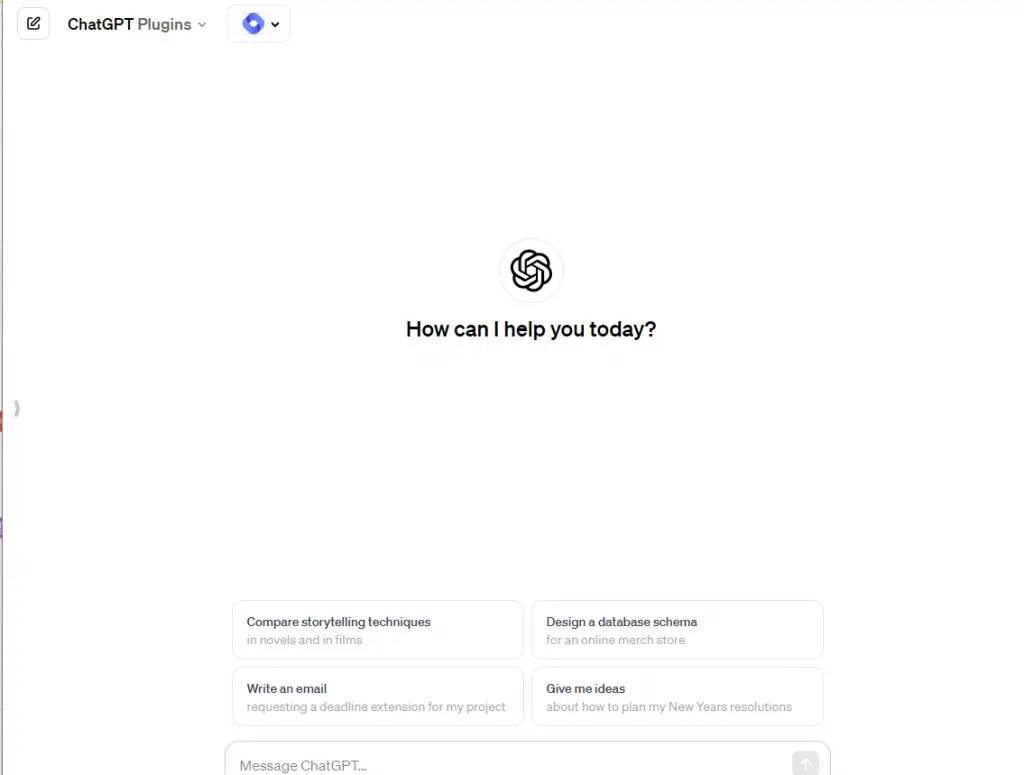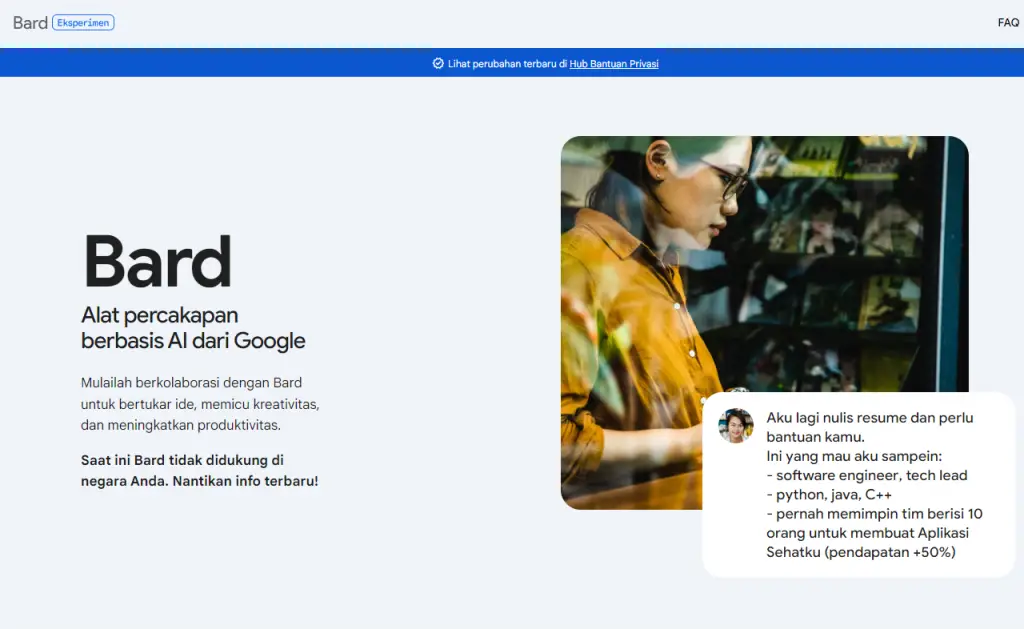2024 Predictions by AI Chatbots: A Glimpse into the Future with ChatGPT, Bing, and Bard

In the rapidly evolving world of technology, AI chatbots have emerged as a cornerstone of innovation, reshaping how we interact with digital systems and process information. Tools like ChatGPT, Bing, and Bard, powered by sophisticated AI algorithms, are not just redefining user experiences but are also playing a pivotal role in sectors like healthcare, global politics, and more. These AI tools, equipped with advanced capabilities such as natural language processing and machine learning, are transforming interactions into more personalized, efficient, and insightful experiences. However, as we delve deeper into the realm of AI chatbots, it becomes crucial to understand their potential, limitations, and the ethical considerations they entail.
AI chatbots, with their evolving capabilities, are transforming industries and global interactions. They enhance healthcare through accurate diagnostics and personalized treatments, influence global politics, and raise ethical concerns. Responsible usage and international cooperation are essential for maximizing their benefits while mitigating risks.
Table of Contents
What is AI chatbot?
An AI chatbot is a computer program designed to simulate conversation with human users, especially over the internet. It utilizes artificial intelligence (AI) technologies, including natural language processing (NLP) and machine learning, to understand, interpret, and respond to user queries in a natural and human-like manner. AI chatbots are widely used for various applications, ranging from customer service and support to personal assistants, entertainment, and educational tools. They can handle a vast array of tasks, from answering FAQs to providing personalized recommendations and even engaging in complex conversations. The key feature of AI chatbots is their ability to learn and adapt over time, improving their responses and interactions based on the data they process and the interactions they have with users. This makes them increasingly efficient and effective in understanding and meeting the needs of the people they interact with.
Features & Benefits of AI Chatbots
Artificial Intelligence (AI) chatbots have revolutionized the way we interact with technology, offering a range of features that enhance user experience across various domains. These digital assistants are not just about responding to queries; they are about creating a more personalized, efficient, and intelligent way of handling tasks.
Personalized User Experience
- Understanding User Preferences: AI chatbots can analyze past interactions to tailor responses and recommendations, making each user’s experience unique.
- Adaptive Learning: They continuously learn from user interactions, improving their accuracy and relevance over time.
- Customized Recommendations: Based on user data, chatbots can suggest products, services, or content that align with individual preferences.
24/7 Availability and Quick Response Time
- Round-the-Clock Service: AI chatbots are available anytime, providing consistent support outside regular business hours.
- Instant Responses: They can handle multiple queries simultaneously, offering immediate answers to common questions.
- Reduced Wait Times: Chatbots significantly cut down on the time users spend waiting for human assistance.
Cost-Effective Customer Service
- Reduced Operational Costs: Automating routine inquiries with chatbots can lower staffing costs and resource allocation.
- Scalability: AI chatbots can effortlessly handle a surge in queries without the need for additional staff.
- Efficiency in Handling Queries: They streamline customer service processes, allowing human agents to focus on more complex issues.
Enhanced Data Collection and Analysis
- Valuable Insights: Chatbots gather and analyze user data, providing businesses with critical insights into customer preferences and behavior.
- Targeted Marketing: This data can be used for personalized marketing strategies, enhancing customer engagement and conversion rates.
- Improved Product Development: Insights from chatbot interactions can inform product improvements and innovation.
Multilingual Support
- Global Reach: AI chatbots can communicate in multiple languages, breaking down language barriers and expanding market reach.
- Cultural Sensitivity: They can be programmed to understand cultural nuances, ensuring appropriate and respectful communication.
- Consistent Communication: Multilingual support ensures a consistent brand voice across different regions and demographics.

2024 Predictions
ChatGPT
- Private Space Travel Expansion: ChatGPT predicts increased accessibility to space tourism, with more private companies offering commercial spaceflights for civilians.
- Lunar Exploration: Ongoing missions to the Moon by various countries and private entities, aiming to study and potentially establish a presence there.
- Mars Mission Advances: Significant progress in Mars exploration, including anticipated launches of robotic missions and developments in plans for human missions.
- Space Industry Collaboration: Growing collaboration between private and governmental space agencies, fostering innovation and accelerating space exploration efforts.
- Space Health Research: Continued research into the effects of long-duration space travel on human health, crucial for planning future deep-space missions.
Bing
- NASA’s Artemis 2 Mission: Bing predicts the launch of NASA’s Artemis 2 mission on the Space Launch System, sending astronauts around the Moon.
- Psyche Mission: Launch of the Psyche mission to study the unique metal-rich asteroid between Mars and Jupiter.
- ISRO’s Gaganyaan and SPAdex: Launch of ISRO’s Gaganyaan uncrewed missions and SPAdex docking experiment.
- Polaris Dawn: The first commercial spacewalk is expected to launch in the first half of the year.
- Global Space Workforce Challenges: The aging of the global space workforce and the need to attract and retain new talent.
Bard
- Europa Clipper Mission: Bard forecasts the launch of NASA’s Europa Clipper mission towards Jupiter’s icy moon Europa, searching for signs of life.
- Deeper Lunar Exploration: The Volatiles Investigating Polar Exploration Rover (VIPER) will explore the Moon’s south pole for water ice.
- Japan’s Martian Moons Exploration: A mission to Mars’ moons Phobos and Deimos, unraveling their origins and potential dangers.
- Rise of Space Tourism: Increased accessibility to suborbital flights and moon trips for wealthy thrill-seekers.
- Space Debris Dilemma: Growing concerns about space junk leading to international efforts to develop debris removal technologies.
How AI Chatbots Generate Creative Forecasts?
Advanced Machine Learning Techniques
AI chatbots like ChatGPT, Bing, and Bard utilize advanced machine learning techniques to generate creative forecasts. These techniques include deep learning neural networks and natural language processing (NLP). By analyzing vast datasets, AI chatbots can identify patterns and trends that might not be immediately apparent to humans. For instance, in predicting future technological trends, they sift through historical data, current technological advancements, and emerging research to forecast future developments. Their ability to process and learn from a wide range of sources, including scientific papers, market reports, and social media, allows them to make informed predictions. Furthermore, continuous learning enables these chatbots to refine their forecasting abilities over time, making their predictions more accurate and relevant.
Divergent Thinking and Imagination
AI chatbots are programmed to employ divergent thinking and imagination, key components in generating creative forecasts. Unlike traditional linear thinking, divergent thinking enables AI to explore multiple possible solutions and scenarios, leading to more innovative and out-of-the-box predictions. For example, when tasked with forecasting future societal changes, AI chatbots can simulate various socio-economic scenarios based on current trends, generating a range of possible futures. This ability to think beyond conventional boundaries allows AI chatbots to come up with novel ideas and predictions, such as new uses for existing technology or predicting the rise of entirely new industries. Their imaginative capacity is not bound by human cognitive biases, enabling them to consider a wider array of possibilities.
Leveraging Knowledge Bases and Expert Input
AI chatbots generate creative forecasts by leveraging extensive knowledge bases and input from domain experts. They access and analyze information from diverse fields, including economics, science, technology, and sociology, to create well-rounded and informed predictions. For instance, in forecasting environmental changes, AI chatbots can integrate data from climate models, environmental studies, and expert opinions to predict future ecological trends. Additionally, they can simulate expert brainstorming sessions, combining insights from various fields to generate innovative solutions to complex problems. This multidisciplinary approach not only enriches the quality of their forecasts but also ensures that their predictions consider various perspectives and are grounded in expert knowledge.

Limitations of AI Chatbots
AI chatbots, despite their advanced capabilities and increasing prevalence in various sectors, are not without limitations. These limitations stem from the inherent challenges in programming AI to understand and interpret the complexities of human language and behavior.
- Understanding Context and Nuance: AI chatbots often struggle with understanding context, sarcasm, and subtle nuances in language, leading to misinterpretations or inappropriate responses.
- Handling Ambiguous or Complex Queries: They may provide incorrect or irrelevant answers when faced with ambiguous questions or topics outside their training data.
- Lack of Emotional Intelligence: AI chatbots cannot genuinely understand or empathize with human emotions, which can be a significant drawback in situations requiring emotional sensitivity.
- Bias in Training Data: The biases present in their training data can lead to biased responses, perpetuating stereotypes or unfair representations.
- Dependence on Data Quality: The accuracy and relevance of their responses heavily depend on the quality and breadth of their training data.
- Limited Creativity: While AI chatbots can generate creative content, their creativity is limited to the patterns and information available in their training datasets.
- Privacy Concerns: The collection and use of data by AI chatbots raise privacy concerns, especially when handling sensitive personal information.
- Ethical and Moral Decision-Making: AI chatbots lack the ability to make ethical and moral judgments, which is crucial in situations involving complex human values.
- Dependency and Reduced Human Interaction: Over-reliance on AI chatbots can lead to reduced human interaction and dependency on technology for problem-solving and decision-making.
- Technical Limitations and Errors: AI chatbots can encounter technical issues or errors, leading to system downtime or incorrect functioning.
The Role of AI in Healthcare and Medicine
Enhancing Diagnostic Accuracy
AI’s role in improving diagnostic accuracy is pivotal in healthcare. Through advanced algorithms and machine learning, AI systems can analyze complex medical data, such as imaging scans, at a speed and accuracy level beyond human capability. For instance, AI algorithms are increasingly used in radiology to detect anomalies in X-rays and MRI scans with high precision. These systems can identify patterns indicative of diseases like cancer, often earlier than traditional methods. This early detection is crucial for effective treatment. Moreover, AI assists pathologists in analyzing tissue samples, reducing the likelihood of misdiagnosis. By providing a second, highly accurate opinion, AI supports healthcare professionals in making more informed diagnostic decisions, ultimately leading to better patient outcomes.
Personalizing Treatment Plans
AI significantly contributes to personalizing treatment plans, tailoring healthcare to individual patient needs. By analyzing a patient’s medical history, genetic information, and lifestyle factors, AI systems can predict the most effective treatment approaches. For example, in oncology, AI algorithms analyze genetic mutations in cancer cells to recommend targeted therapies, increasing the likelihood of successful treatment. Additionally, AI-driven predictive models can forecast a patient’s response to various medications, enabling clinicians to choose the most effective drug while minimizing side effects. This personalized approach is particularly beneficial in chronic disease management, where AI can continuously monitor patient data, adjusting treatment plans as needed to optimize health outcomes.
Streamlining Clinical Trials
AI is revolutionizing the way clinical trials are conducted, making them more efficient and effective. By leveraging AI algorithms, researchers can quickly analyze vast amounts of data to identify potential trial candidates who meet specific criteria. This process significantly speeds up participant recruitment, a traditionally time-consuming phase of clinical trials. AI also plays a crucial role in monitoring trial participants, using wearable devices and mobile apps to collect real-time data on health parameters. This continuous monitoring provides researchers with a wealth of data, allowing for more accurate assessments of a treatment’s effectiveness and safety. Furthermore, AI can predict potential adverse reactions, enhancing patient safety during trials. By streamlining these processes, AI not only accelerates the development of new treatments but also reduces the costs associated with clinical trials.
Advancing Drug Discovery and Development
AI is a powerful tool in drug discovery and development, significantly reducing the time and cost associated with these processes. AI algorithms can analyze scientific literature and existing databases to identify potential drug candidates and predict their efficacy and safety profiles. This approach allows researchers to focus on the most promising compounds, speeding up the discovery phase. In drug development, AI models simulate how a drug interacts with human biology, predicting potential side effects and efficacy. This simulation reduces the reliance on early-stage human or animal testing, accelerating the development timeline. Additionally, AI can identify new uses for existing drugs, a process known as drug repurposing, which can quickly bring new treatments to patients. The integration of AI in drug discovery and development not only fosters innovation but also has the potential to bring life-saving medications to market more rapidly.

AI And Global Politics: Influence And Regulation
AI’s Impact on International Relations and Diplomacy
AI’s influence on international relations and diplomacy is becoming increasingly significant. AI technologies enable the analysis of vast amounts of diplomatic data, from public statements to private communications, providing insights into global political trends and foreign policy strategies. This capability enhances a country’s understanding of international dynamics and aids in formulating more informed foreign policies. Additionally, AI-driven simulations can predict outcomes of diplomatic negotiations, assisting diplomats in strategy formulation. However, the use of AI in international espionage and surveillance raises ethical concerns and could potentially escalate tensions between nations. The global race for AI supremacy also impacts international power balances, with leading AI nations gaining a strategic advantage in diplomacy and global influence.
Regulation of AI in the Global Arena
The regulation of AI on a global scale is a complex challenge, requiring international cooperation and consensus. Different countries have varying perspectives on AI ethics, privacy, and usage, making it difficult to establish universal regulatory standards. International organizations like the United Nations and the European Union are actively working towards global guidelines for AI development and use, focusing on ensuring ethical practices, transparency, and accountability. These regulations aim to prevent misuse of AI in critical areas such as surveillance, warfare, and human rights violations. The establishment of international AI watchdogs and regulatory bodies is also being discussed to oversee AI development and ensure compliance with global standards, promoting a safe and equitable AI future.
AI’s Role in Election Interference and Propaganda
AI’s role in election interference and propaganda has become a major concern in global politics. AI technologies, such as deepfakes and social media bots, can be used to spread misinformation, manipulate public opinion, and interfere in electoral processes. This capability poses a significant threat to the integrity of democratic institutions and processes worldwide. Governments and international bodies are grappling with ways to combat AI-driven election interference, including implementing stricter regulations on social media platforms, developing AI detection tools, and increasing public awareness about misinformation. Collaborative efforts between nations are essential to address these challenges effectively and protect the democratic process from AI-enabled threats.
Ethical Implications of AI in Warfare and Defense
The ethical implications of AI in warfare and defense are a growing concern. Autonomous weapons systems, powered by AI, can make decisions about targeting and attacking without human intervention, raising moral and ethical questions about the role of AI in conflict. The potential for AI-driven warfare to escalate conflicts and cause unintended civilian casualties is a significant issue. International debates are ongoing about the development and use of lethal autonomous weapons, with calls for global bans or strict regulations. The integration of AI into defense strategies also raises concerns about an AI arms race, potentially leading to increased global instability. Addressing these ethical challenges requires international dialogue and agreements to ensure that AI is used responsibly and humanely in military contexts.
How Can We Ensure that AI Chatbots are Used Responsibly?
Establishing Ethical Guidelines and Standards
To ensure the responsible use of AI chatbots, it’s crucial to establish and adhere to ethical guidelines and standards. These guidelines should address issues like privacy, data security, transparency, and accountability. For instance, AI chatbots should be designed to respect user privacy by not storing or misusing personal data. Transparency is also key, where users are informed about how their data is used and how the chatbot operates. Additionally, there should be clear accountability measures in place, so that if a chatbot causes harm or operates in an unethical manner, there is a clear protocol for addressing these issues. Developing these guidelines often requires collaboration between AI developers, ethicists, legal experts, and other stakeholders to ensure a comprehensive and practical ethical framework.
Regular Auditing and Monitoring
Regular auditing and monitoring of AI chatbots are essential to ensure they function as intended and adhere to ethical standards. This involves routinely checking the chatbot’s interactions and decisions to identify any biases, inaccuracies, or unethical behavior. Auditing should be conducted by independent third parties to ensure objectivity. Monitoring also includes keeping track of how chatbots are being used by the public and ensuring that they are not being exploited for harmful purposes, such as spreading misinformation or engaging in fraudulent activities. By continuously evaluating chatbots, developers can make necessary adjustments to improve performance and maintain ethical standards.
Continuous Education and Awareness
Educating both the creators and users of AI chatbots is fundamental to their responsible use. For creators, this means staying informed about the latest developments in AI ethics and technology. They should be aware of the potential biases in their algorithms and actively work to mitigate them. For users, education involves understanding how AI chatbots work, what their limitations are, and how to interact with them safely and effectively. Raising awareness about the potential risks and ethical considerations of AI chatbots can lead to more informed and cautious use. Educational initiatives can be facilitated through workshops, online courses, and informational campaigns, ensuring that all stakeholders are equipped with the knowledge to use AI chatbots responsibly.
Conclusion
In conclusion, the advancements in AI chatbots like ChatGPT, Bing, and Bard, and their integration into various sectors, notably healthcare, global politics, and everyday interactions, mark a significant leap in technology. While they offer immense benefits such as enhanced diagnostic accuracy in healthcare, personalized treatment plans, and efficient drug development, they also pose challenges and ethical considerations. The limitations of AI chatbots, including issues with context understanding and potential biases, underline the importance of responsible usage, ethical guidelines, and continuous monitoring. The role of AI in global politics, especially in diplomacy, regulation, and warfare, further emphasizes the need for international cooperation in managing AI’s impact. As we embrace these technological advancements, it is crucial to balance innovation with ethical responsibility, ensuring AI chatbots contribute positively to society and global progress.

